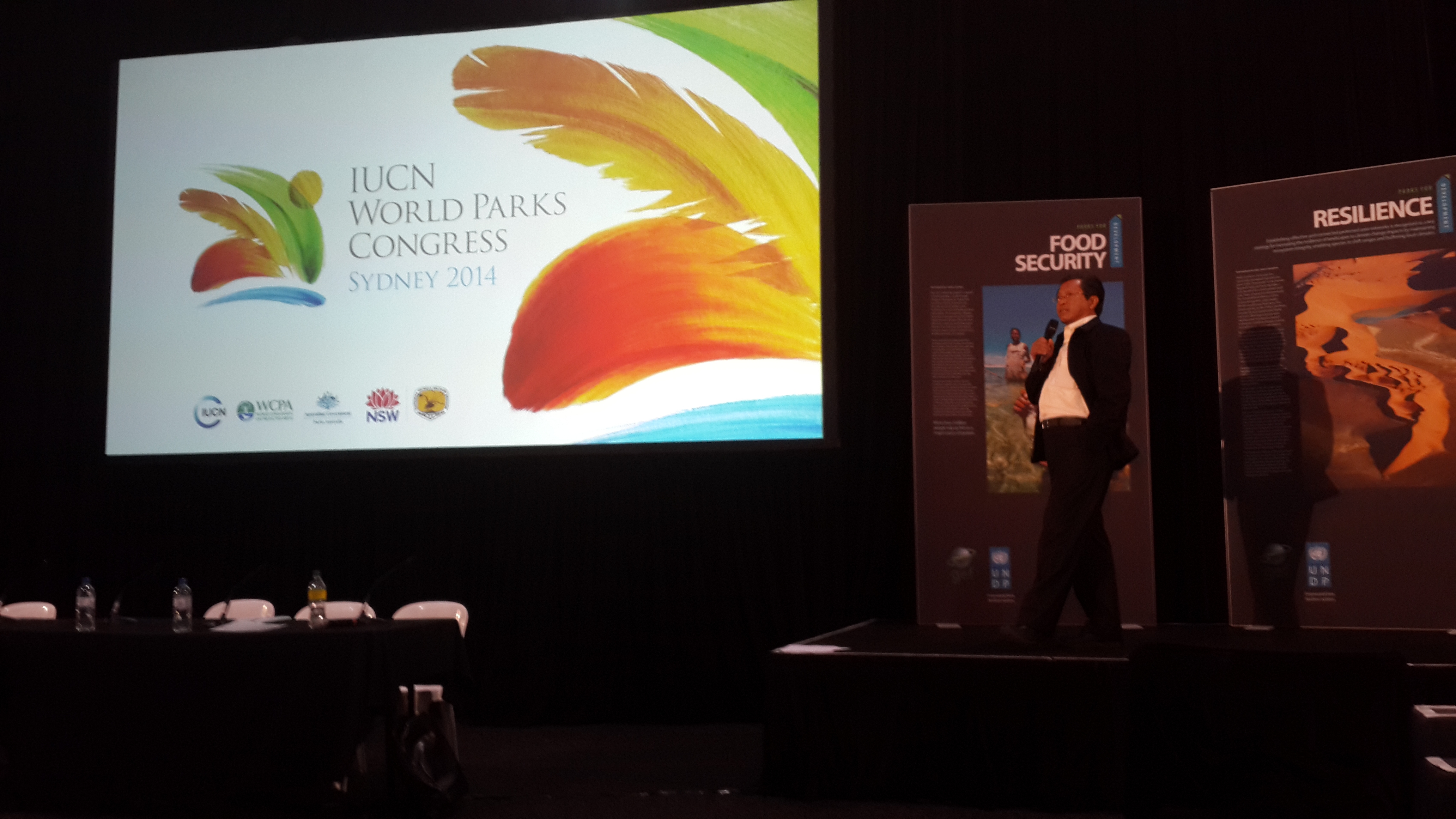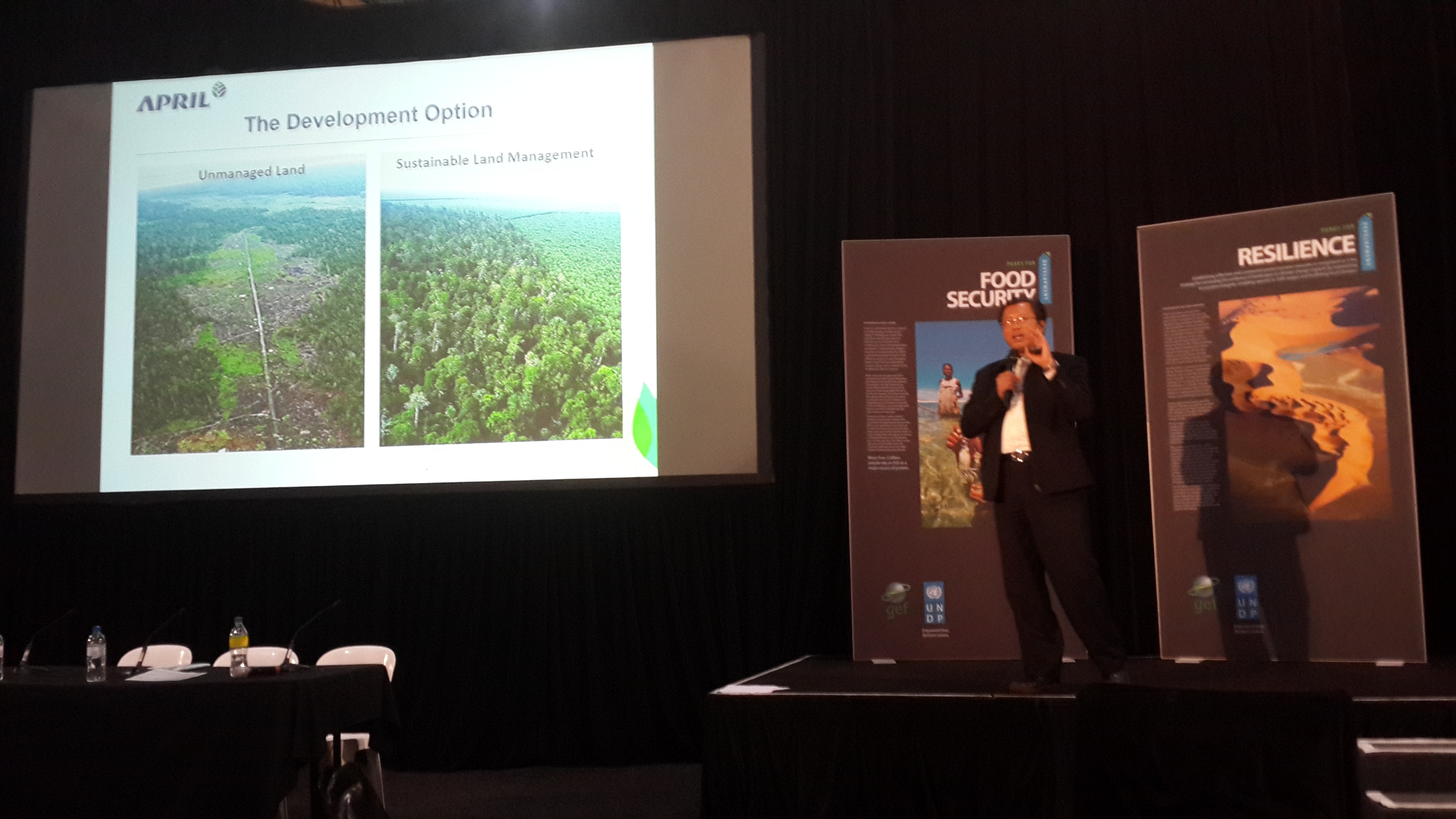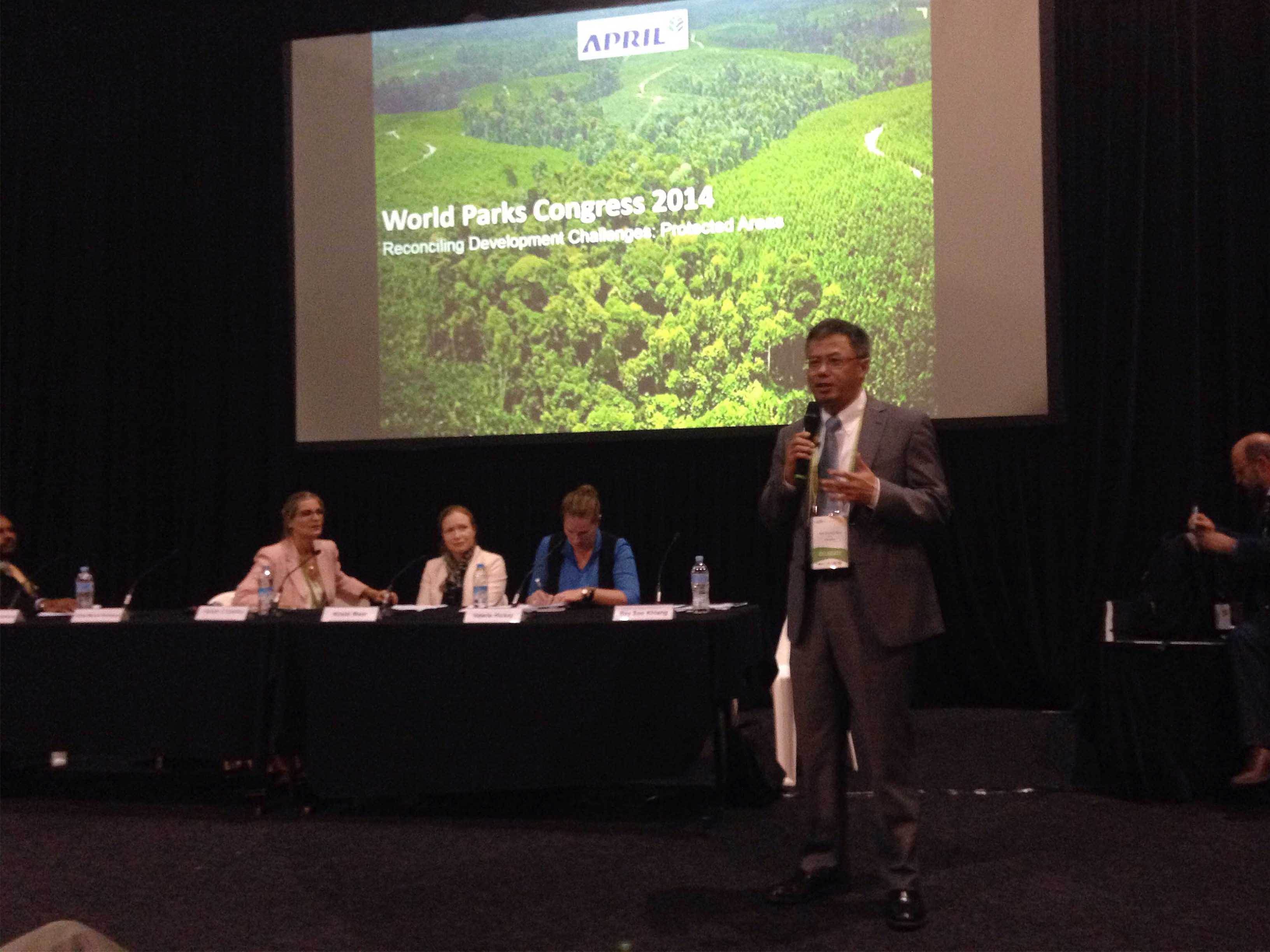APRIL Participates in World Parks Congress 2014: The Promise of Sydney
More than 6,000 participants from 170 countries assembled in Sydney Australia last week for the IUCN World Parks Congress a once a decade forum that captures the boldest thinking of governments, institutions, private companies, communities, civil society leaders and indigenous peoples on approaches to protected areas ‘that respect and conserve nature while benefiting human health and prosperity.
Plenary sessions and keynote speeches addressed global trends and the challenges that have unfolded since the last Congress in Durban in 2004. There was open, inclusive debate designed to arrive at ‘inspiring solutions’ to the Planet’s most pressing problems in the decade ahead.
APRIL joined this diverse group of stakeholders, focusing on a core Congress theme of development challenges and solutions. In two sessions, it contributed thoughts and ideas on how best to balance conservation efforts alongside development imperatives based on its experience over 20 years of operating in Indonesia.
Since APRIL first started operations in Riau Province, Sumatra, Indonesia, it has created 90,000 jobs to help alleviate poverty in the region while at the same time actively conserved and protected more than 250,000 hectares of High Conservation Value Forest.
APRIL Chairman Bey Soo Khiang, supported by Sustainability Director Petrus Gunarso and Deputy Director on External Relations Jemmy Chayadi outlined APRIL’s approach to sustainable forest management, where forest conservation and eco-restoration initiatives coexist with sustainable plantation operations.
As well as discussing the Indonesian forestry landscape in its broader developmental context, the APRIL team highlighted ways in which conservation and restoration efforts can be enhanced through active management and compliance with laws and industry standards by the private sector – and the negative impact an absence of active management has on other conservation efforts.
APRIL’s ‘plantation ring’ approach, where high value conservation forest is encircled by plantation forest forming a protective buffer against encroachment and illegal logging resonated with delegates as an economically sustainable way to actively manage protected lands – incorporating the value of ‘natural capital’ and functioning ‘natural infrastructure.’
APRIL Chairman Bey Soo Khiang noted: “We were heartened by the level of interaction with environmental and development leaders. The economics of conservation are important. The forestry sector can do more to measure and report the value of this natural capital and the investment required to maintain it as part of a balanced, sustainable approach to business.”
Dr Gunarso, who spoke on a similar topic added “Many of the insights shared by business and environmental leaders are relevant and transferable, particularly the need to integrate protected areas into planning and development concepts at a business level. In this respect, we came away believing we are moving in the right strategic direction.”
The Congress concluded with the publication of the ‘Promise of Sydney’, encompassing a vision, innovative approaches to transformative change, solutions and promises designed to provide pathways over the next decade to ensure the survival of protected areas and to guide strategic directions.
APRIL would like to sincerely thank IUCN, UNDP and the partner organisations involved in the successful hosting of the World Parks Conference 2014 for the invitation to participate.
The Promise of Sydney can be viewed here






